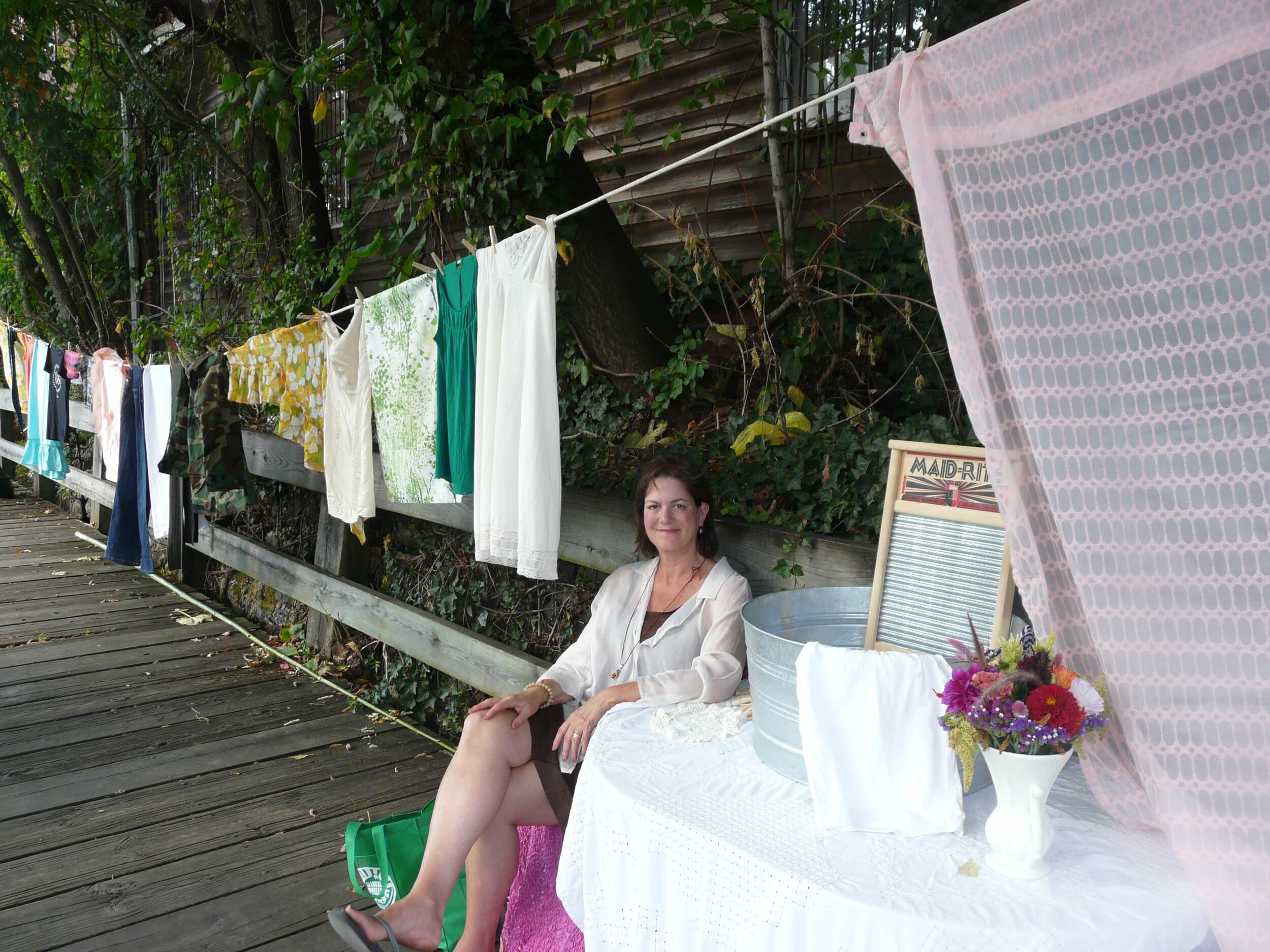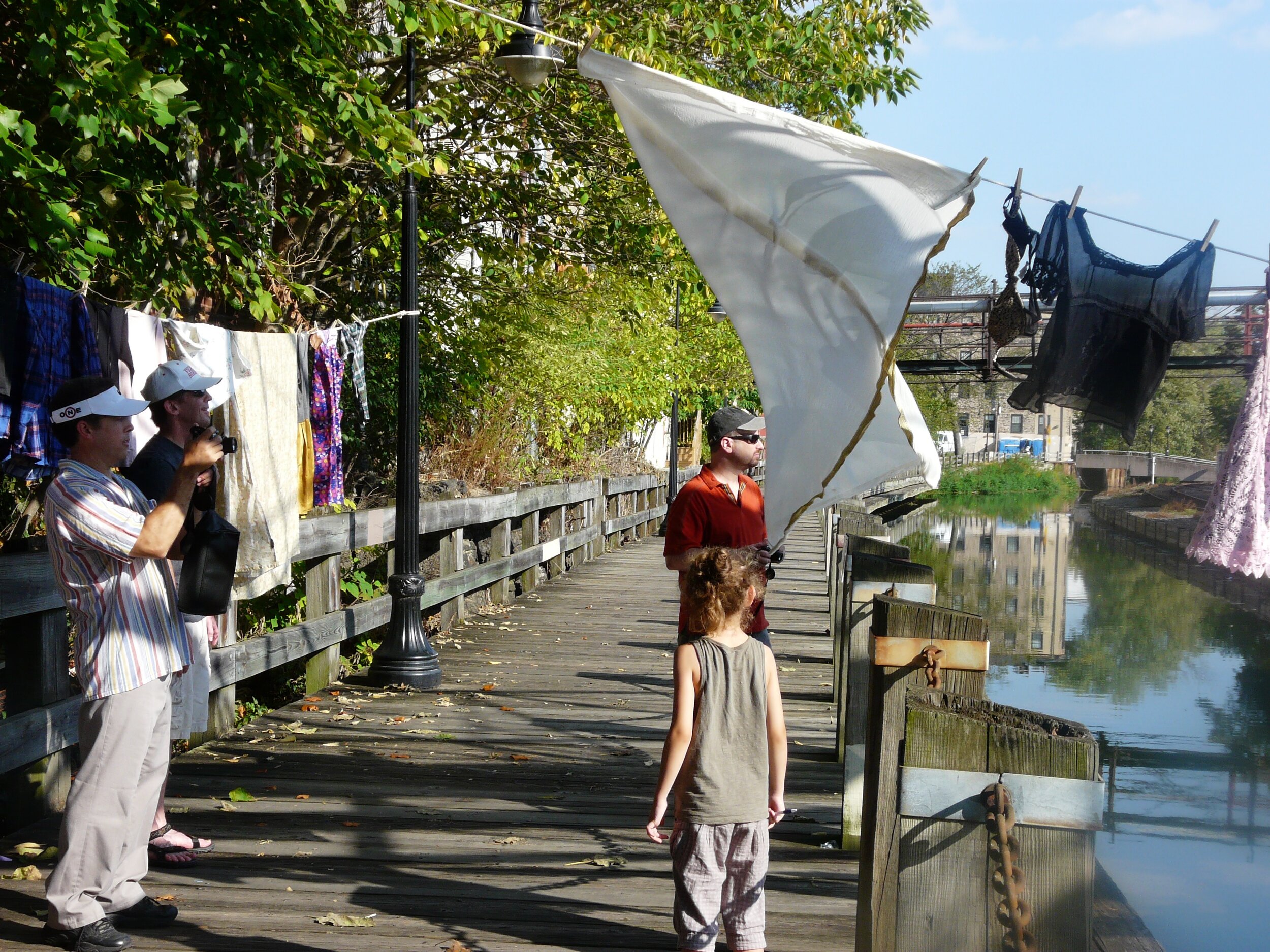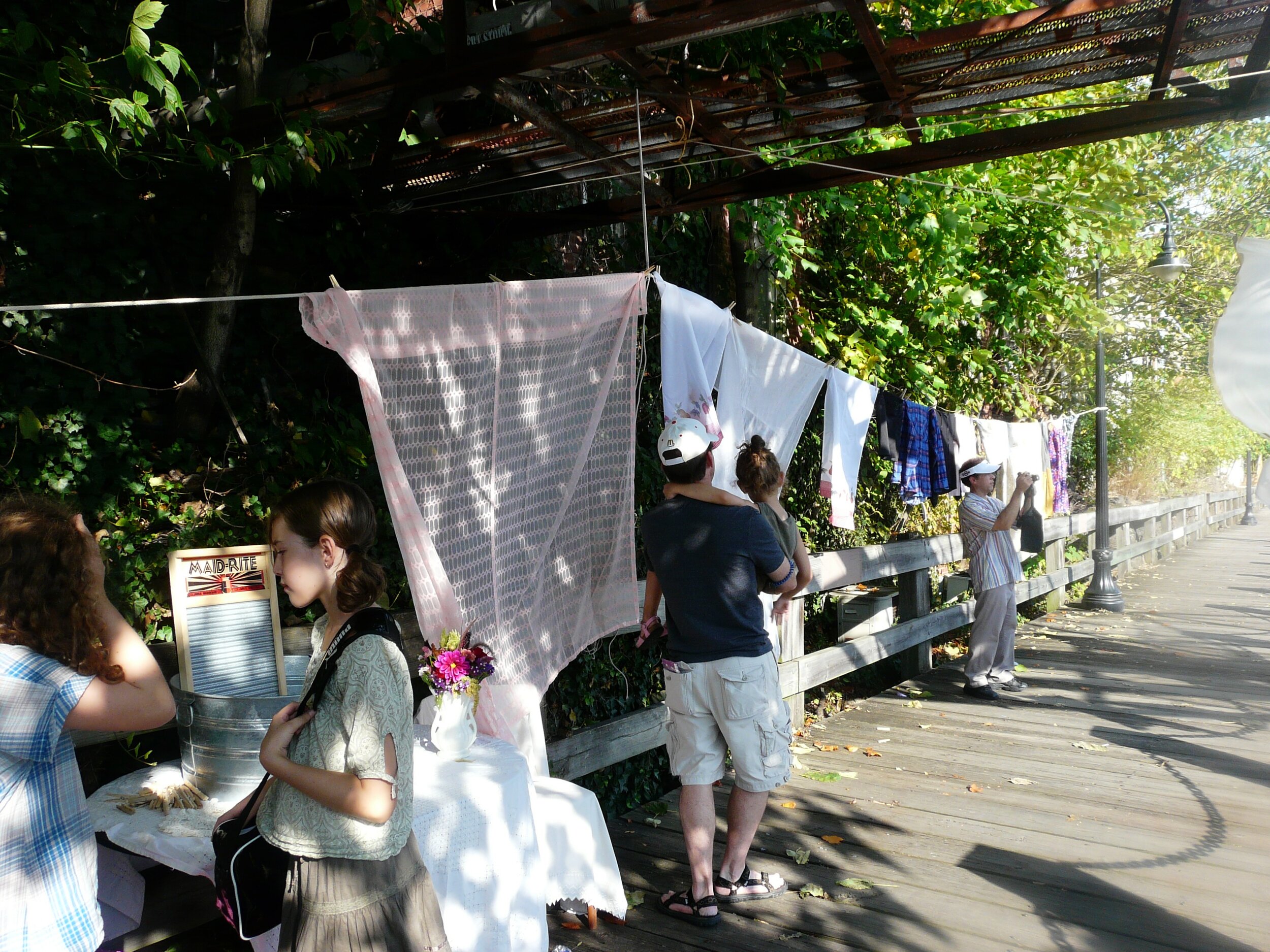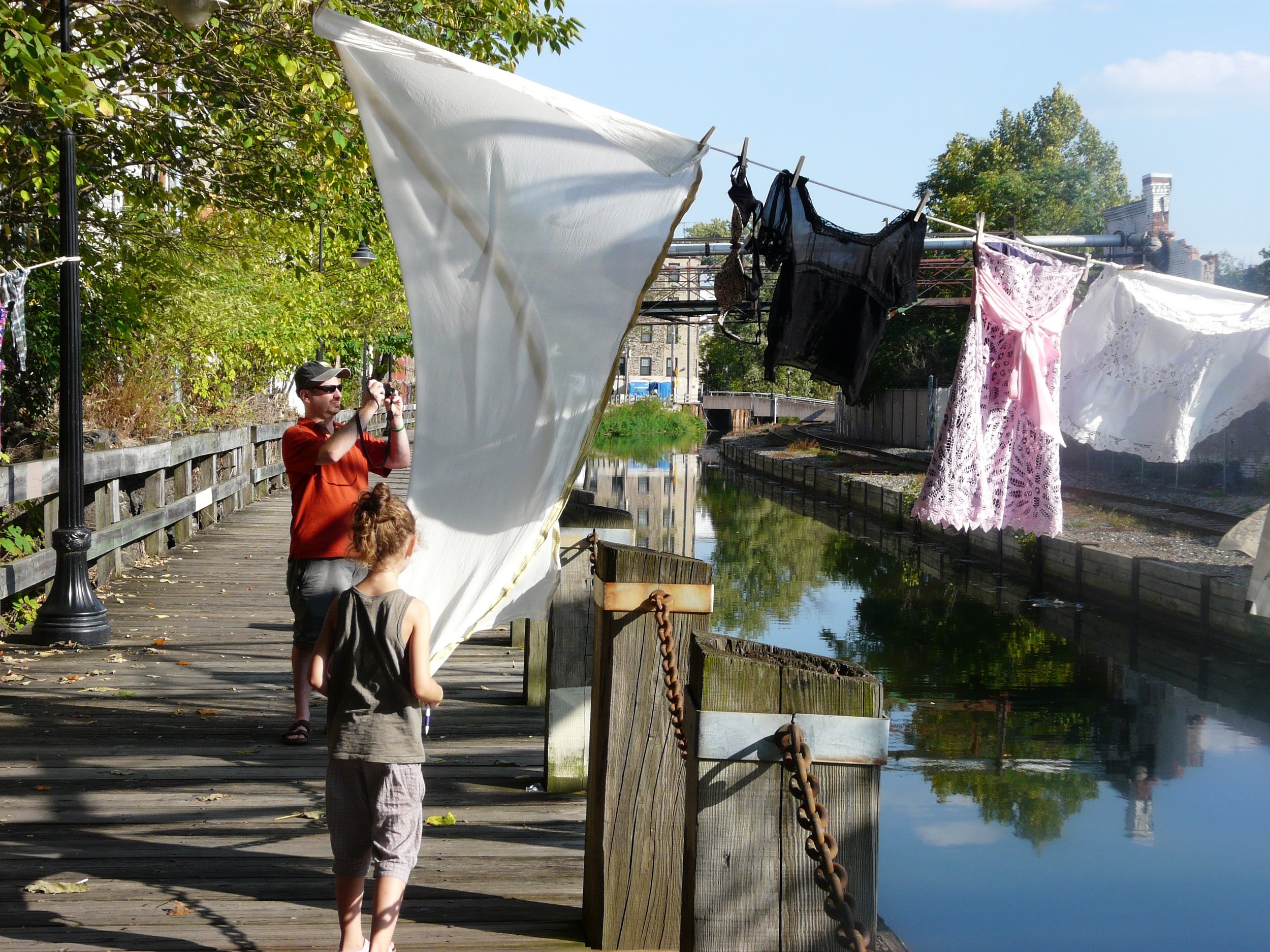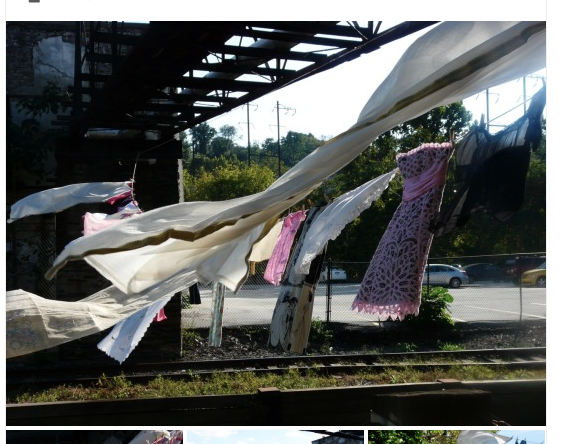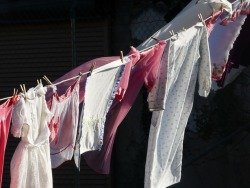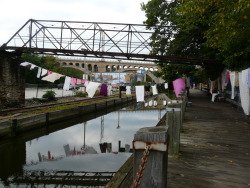Women’s Work
Manayunk, PA
My grandmother’s tradition of hand-washing and line-drying clothes was a weekly task usually done on Mondays. The everyday, ordinary task becomes a meditation on the past and a moment in the present. There is pleasure in hanging the clothes and releasing them to the wind. My grandmother washed clothes in a tub with a board and a hard bar of soap. Hard labor, women’s labor. In some communities, women would gather together to hang their laundry one day a week and talk, share and gossip. The clothesline is a self-portrait of sorts, comprised of clothing, household and other fabrics that identify a history of my mother, my grandmother and myself, all as artists and women in many changing and sometimes contradictory roles. In a world where much is disposable and easily replaced or forgotten, the lessons of the past can guide us.
A hot-pink transparent negligee; a housewife’s white-and-red-checkered apron, stiff and ruffled; a pink lace party dress with a black lining, a perfect sweet-16 party dress. Clothes for shifting roles—a schoolgirl, housewife, artist. Does the inhabitant of the negligee perform for the viewer or for herself? An innocent young girl’s navy school uniform—compliance begins early. A torn flannel nightgown—the absence of the sexual. All these clothes identify the feminine, the female, the woman/girl. A camouflage Army jacket, worn by those who protect and those who kill, once represented the masculine and now the feminine as well.
The clothesline in Women’s Work has multiple meanings. Women’s work is many things, and as the work inhabits the space where the domestic and creative intersect, a conversation begins. It is at once practical and visual. The wind dries, animates, moves knowing that bodies once inhabited the clothes and something is left behind.
Women keep the family clean while these tasks structure, maintain and confine. There is also beauty in clothing arranged through the eye of the artist. It’s a painting of clothes with form, shape, line, color, and transparency. There can be a delicate pink or burdensome camouflage for the men in my family who have gone to war. I paint with these clothes.
